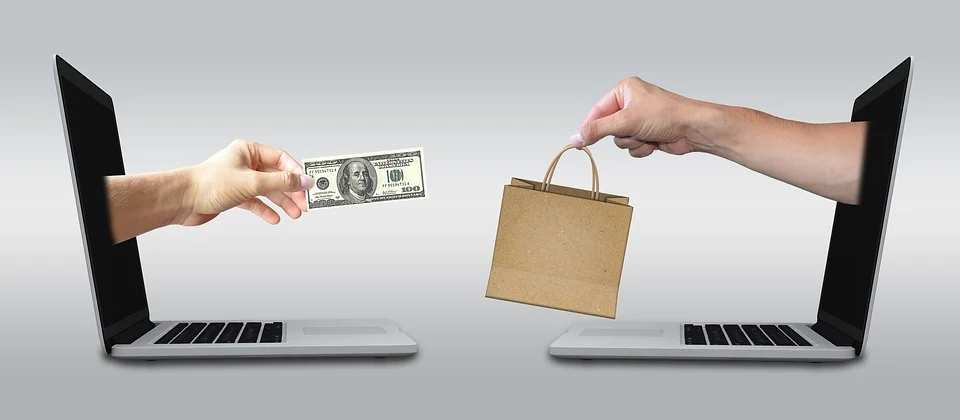Diving into Amazon FBA private label can be a tremendous way to build a profitable business… but it’s important to understand that private labeling is not for everyone. This leads to many people asking: Is Amazon FBA private label profitable?
For some FBA sellers, the process of creating and selling a private label product can be significantly more difficult than simply dropshipping or reselling another company’s products – but it often comes with more upside and scalability. In order to succeed with private labeling, you will need to invest a considerable amount of time and effort into research, product development, and marketing.
You also need to be comfortable with managing inventory, dealing with suppliers, and handling customer service issues. If you are willing to put in the work, private labeling can be a great way to build a massively-profitable Amazon business.
However, if you’re not prepared to commit the necessary time and resources, you may want to consider another option. Continue reading this article to help you decide!
Use this outline to skip to any section of this page:
- What is Amazon FBA private label?
- What makes an Amazon selling strategy profitable?
- How does FBA private label work on Amazon?
- FBA private label: Pros
- FBA private label: Cons
- Is Amazon FBA private label profitable?
What is Amazon FBA private label?
For FBA sellers, Amazon private label can be a great way to create a unique product that can help you stand out from the competition. This often involves choosing a commonly-sold product that you can make your own – and it allows room for you to add your own unique twist to the product.
For FBA sellers, private label products are a great opportunity to increase sales and grow their businesses. Private label products are products that are sold under a brand name that is different from the brand of the manufacturer. In other words, private label products are not branded with the name of the company that manufactures them – you get to choose the branding.
What else do I need to know?
If you are interested in selling private label products on Amazon, there are a few things you need to know. First, you need to find a supplier who can provide you with high-quality products at a reasonable price. Second, you need to create a brand strategy that will set your products apart from the competition. Finally, you need to invest in good packaging and branding that will make your product look appealing to buyers.
Creating a successful private label business takes a lot of hard work and dedication, but it can be incredibly rewarding. If you’re willing to put in the effort, you can create a wildly profitable business that stands out from the competition.

What makes an Amazon selling strategy profitable?
The most profitable Amazon selling strategy depends on your capabilities – your cash flow situation, your business setup, your strengths & weaknesses, and more. It’s first important to determine the pros and cons of FBA private label to determine if it’s profitable for you – since many Amazon sellers fail with private label and many sellers find great success.
Let’s talk about how private label works – and then we’ll dive into the pros and cons later in this article:
How does FBA private label work on Amazon?
Source unbranded products from suppliers
Sourcing unbranded products from suppliers and manufacturers is a viable business model for many entrepreneurs. This is how private label works – and can be very profitable if done correctly.
In order to private label products, you first need to establish relationships with suppliers and manufacturers. The best place to find these suppliers is often Alibaba, which is a huge online marketplace for businesses. Once you have established relationships with suppliers, you can then negotiate terms and pricing.
Then, once you source the products, you can then create your own brand and packaging. Private labeling can be a great way to build a successful business, but it requires careful planning and execution.
Create your own brand and logo
When you create a private label product, you are creating your own brand. This means that you need to come up with a name and logo for your product. This can be difficult, but there are a few things to keep in mind when creating your brand.
The first step is to come up with a name. It’s crucial to choose a name that is memorable and easy to spell. You also want to make sure that the name is relevant to your product. For example, if you are selling shampoo, you might want to choose a name that relates to hair care or beauty.
What’s next?
The next step is to create a logo. Your logo is an important part of your brand, and it should be simple and eye-catching. It’s also important to make sure that your logo is relevant to your product. For the example above, if you are selling shampoo, you might want to use an image of a shampoo bottle in your logo.
Once you have a name and logo, you’ll want to establish your brand identity and messaging. This involves what your brand stands for, how it connects to customers, and what problems your product solves. This is how you build a relationship with your customers and create brand loyalty.
Creating a private label brand can be difficult, but it’s worth it if you do it correctly. By choosing the right name and logo, and by promoting your brand effectively, you can create a successful business that stands out from the competition.
You own the rights to the product & brand
When you create an Amazon private label product, you are in control of the product and the brand. This gives you the opportunity to create a unique product that meets the needs of your customers. You can also design your own packaging and create a marketing campaign that resonates with your target audience.
Creating an Amazon private label product can be a great way to build a successful business. By building a strong brand and providing high-quality products, you can create a loyal following of customers who will return to your store time and time again.

FBA private label: Pros
Freedom from original manufacturers
When you sell a product that is manufactured by a company, you are limited in what you can do with that product. For example, you might not be able to advertise it in a certain way or sell it at a certain price. With Amazon private label, you can avoid these rules and restrictions. This gives you more control over your business and allows you to sell the product at a price that is more profitable for you.
Another advantage of selling products through Amazon private label is that you can reach a larger audience. When you sell products that are manufactured by another company, you are limited to the people who are familiar with that company’s products. With Amazon private label, your products will be available to anyone who visits the Amazon website. This gives your products exposure to a larger number of people and can help you to increase sales.
More control over pricing & strategy
One of the benefits of Amazon private label is that you have more control over pricing strategy and marketing strategy. With a branded product, you are at the mercy of the retailer, who may or may not choose to price your product competitively or market it effectively. When you create a product with Amazon’s private label program, you set the price and you control the marketing. This gives you more flexibility and can help you to sell your product more effectively.
This is one of the main benefits of creating a unique product. When you work with a retailer, they will often want you to use their existing templates and designs. This can limit your ability to create a unique product that stands out from the competition. With Amazon private label, you have complete control over the design and branding of your product, which can help it to stand out from the competition.
Less competition
When you’re a reseller on Amazon, you’re competing against other sellers who are also trying to win the buy box for that product. But with Amazon private label, you don’t have to worry about that. Since your listing is unique, you get to control the buy box and sell more products. This can be a great way to boost your business and increase your profits.
Avoiding the competition with other resellers (who are all selling large brand name products) can give you a competitive edge, since you’re the only seller of that particular product. This can help you to stand out from the competition and drive more sales.

More scalable with higher upside
As an Amazon private label seller, you have more control over your marketing strategy – and you’re not dependent on the reputation of large brand-name products as a reseller. You can target specific buyers and customize your marketing to fit their needs – which can help you grow your business faster, since you’re reaching the right buyers with the right message.
Additionally, by selling through Amazon, you’re tapping into the world’s largest ecommerce platform and the massive demand behind private label products. This can help you reach more buyers and grow your business even faster.
FBA private label: Cons
You must start from scratch with new branding
One of the main disadvantages to creating an Amazon private label is that you have to start with a brand new product. This means that you have to create demand starting from zero, which can be difficult. It’s critical to have a clear idea of your target market and what needs your product can fulfill before starting down this path.
This also involves finding the right mix of marketing and advertising to get people interested in what you’re selling. It’s also important to have a good product that people truly want – and if you can’t create a demand for your product, it won’t sell.
Long-term process
When you’re looking to start selling products through Amazon, private label can be a great way to go. You can create your own brand, and build up sales and reputation over time. However, it’s not always easy – shoppers can sometimes be hesitant to purchase new products with new branding. You’ll need to put in a lot of hard work to make your private label successful. But if you’re willing to put in the effort, the potential rewards can be great.
Keep in mind – you’re starting with no reviews, no sales history, and you only get to start with your seller account and overall store history (and many shoppers don’t even check the seller’s history and reviews). You may need to begin with discounting or promoting with PPC in order to drive initial sales.
You take full responsibility of product
Having complete control over the quality of the product can be a huge positive… but on the downside, you take full responsibility for the product. This means that any issues or problems with the product will be your responsibility, and you will need to sort them out yourself. Additionally, you will need to handle all of the marketing and sales for the product yourself, which can be a lot of work.
No search demand – you need a fresh marketing strategy
Building a brand and reputation for a new Amazon private label product can be a difficult task. Without any search volume or demand for the product, you’ll need to create a new marketing strategy and build awareness from scratch. This means zero reviews, so you’ll need to focus on customer satisfaction to get those first few reviews. With a lot of hard work and dedication, it is possible to build a successful Amazon private label business. It’s certainly doable, but it’s not going to be easy.

Is Amazon FBA private label profitable?
The short answer: it depends on your company’s situation, strengths and weaknesses.
For many entrepreneurs, the appeal of private labeling is undeniable. By sourcing unbranded products from suppliers and manufacturers, they can create their own unique product line that carries their business name. And with the vast reach of the Amazon marketplace, private label sellers have an incredible opportunity to reach a global audience.
However, private label selling is not without its challenges. In order to be successful, sellers must carefully select the right products and partners, build a strong brand identity, and create a seamless customer experience. But for those who are willing to put in the work, private label selling can be a highly profitable endeavor.
If you have trouble with marketing products on Amazon, you may want to stick with reselling. But if you’re capable of sourcing high quality products, building a nice brand, and creating demand for new products… then private label might be the best choice for you.
